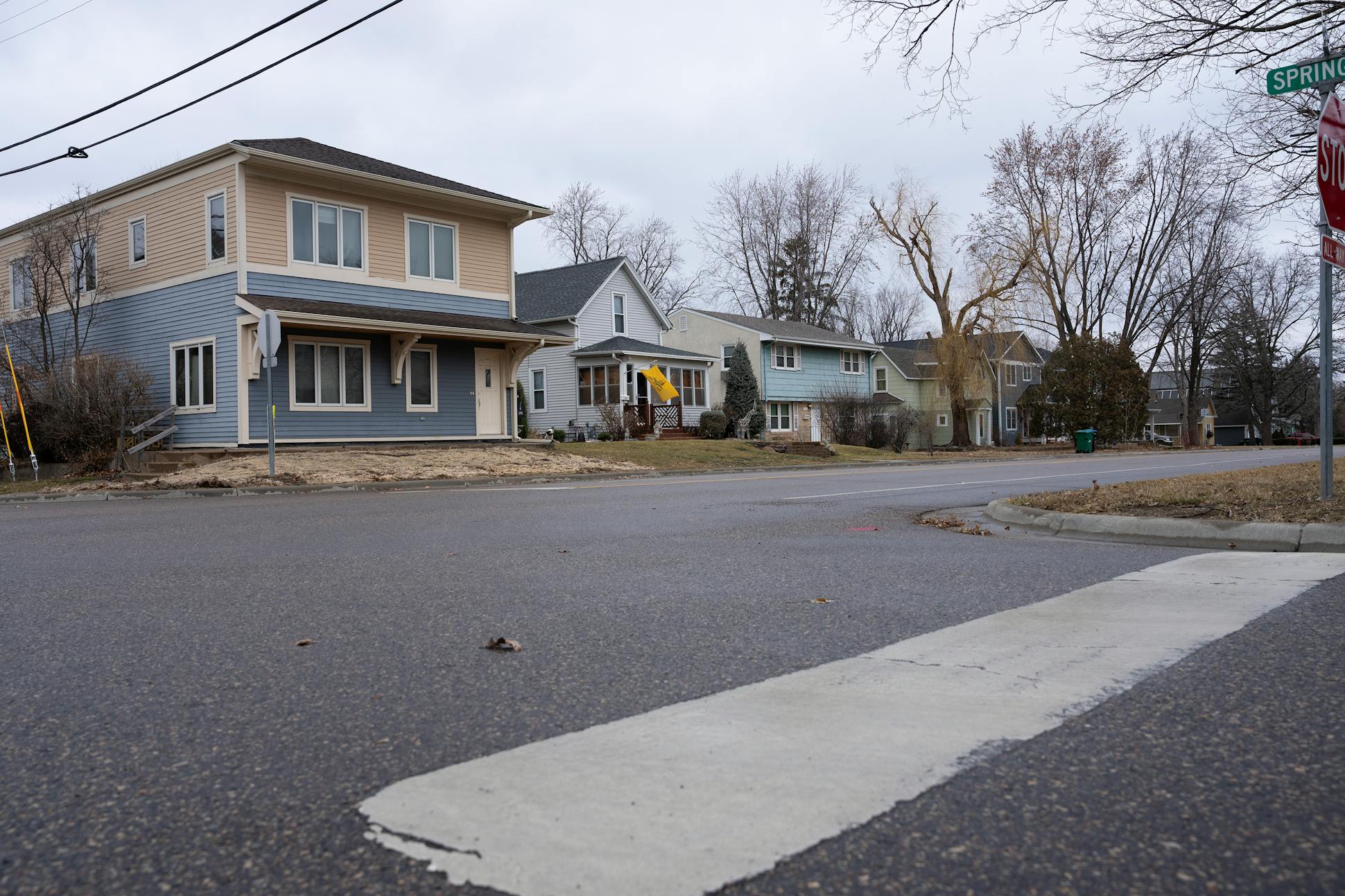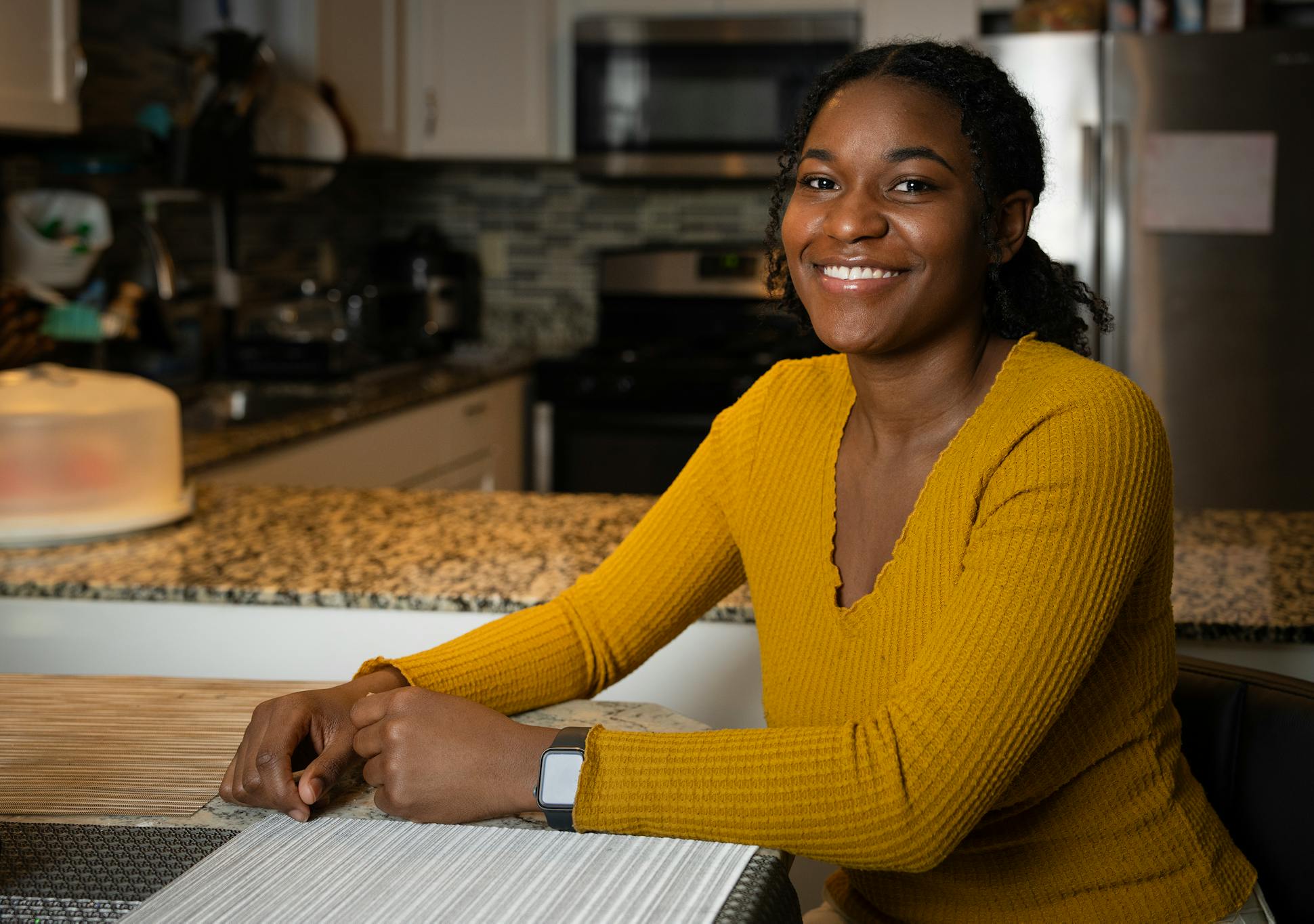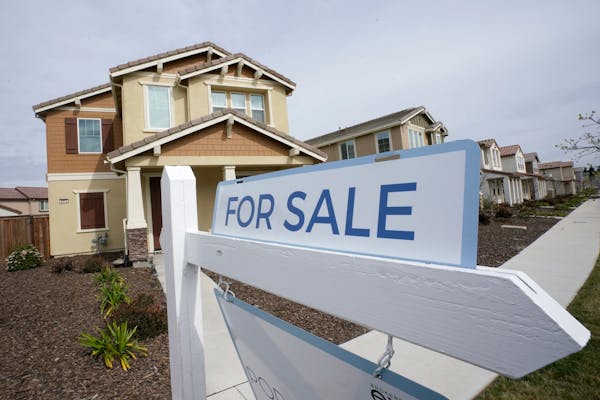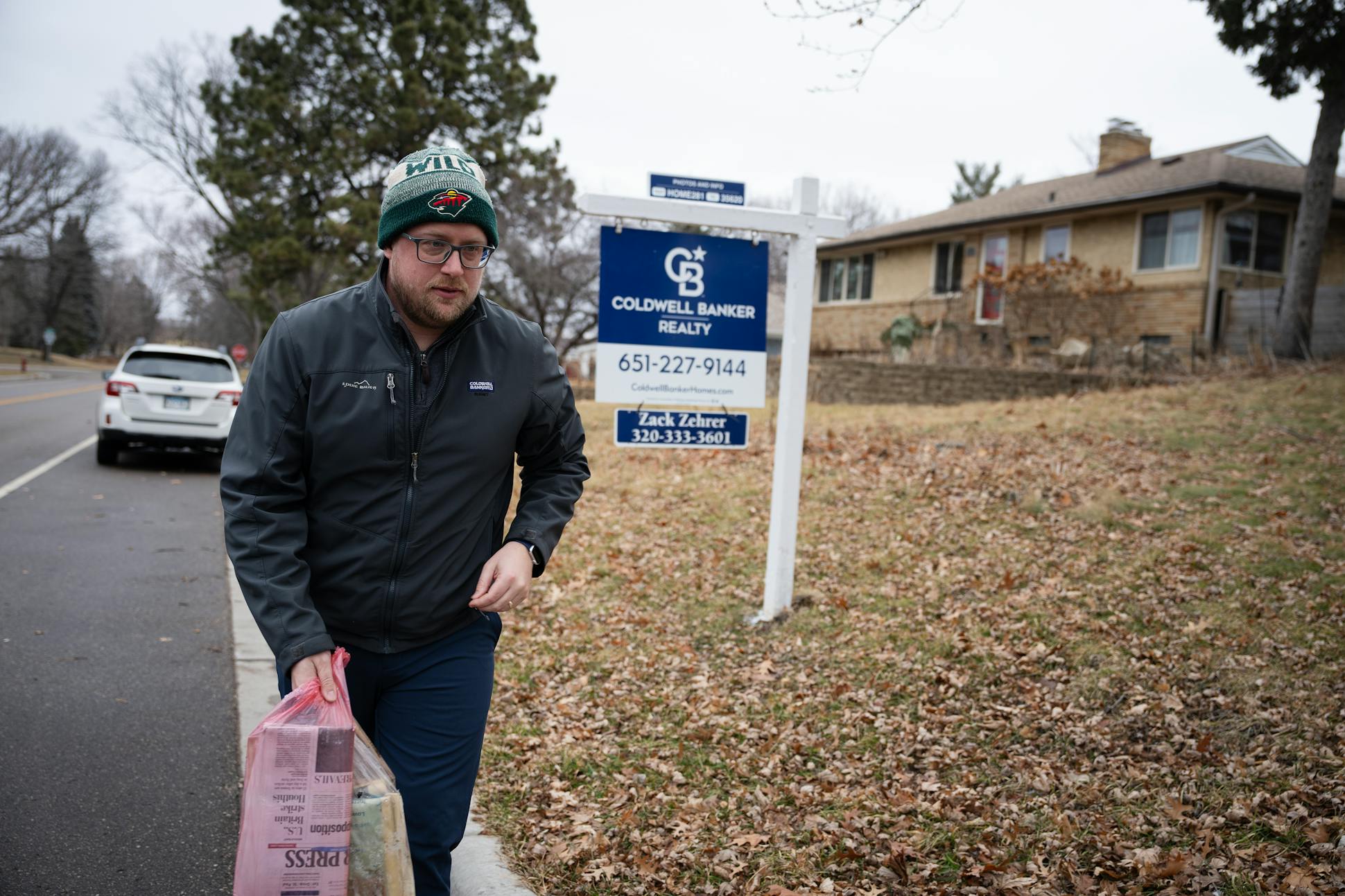These areas have the most, least expensive starter homes in the Twin Cities
Lauderdale — a speck of a city sandwiched between Minneapolis and St. Paul — doesn't have sidewalks, a single strip mall or even its own police force. But it does have an abundance of really inexpensive, not-so-old houses affordable to first-time buyers.
"It's a hidden gem in a lot of ways," said Zack Zehrer, who bought his first house in Lauderdale nearly a decade ago. His 1.5-story house built in the mid-1950s has three bedrooms and is a lot like many of the houses in the city.
While Lauderdale had the highest share of starter home sales in the metro last year, it wasn't the only "hidden gem" for buyers looking to spend $300,000 or less. A Star Tribune analysis based on data from Minneapolis Area Realtors ranked cities based on their percentage of 2023 sales affordable to buyers in that price range and showed the cities with the highest share of starter homes were small, inner-ring suburbs (like Lauderdale) and exurban outposts sprinkled throughout the metro.
The only big city on the top-10 list was St. Paul, where nearly 60% of the 2,687 home sales last year fetched under $300,000. In top-ranking Lauderdale, just a few minutes from downtown St. Paul and Minneapolis, there were only a few dozen sales each year. But more than 83% of houses sold were starter homes, the highest share of any of the 120-plus cities on the list.
"I can see downtown Minneapolis from my kitchen window, so I still feel connected to the city," Zehrer said, touting Lauderdale's proximity to the largest city in the index.
City options
Based on its sheer size, Minneapolis had the most starter home sales. But of the more than 4,200 sales in the city last year, not even half of them sold for less than $300,000, making it a far more challenging place for first-time buyers.
Caliyah Rush was one who had success, but only after months of shopping for her four-bedroom house in the city's McKinley neighborhood, purchased for $245,000 in October. Rush and her parents had long been renters who'd grown weary of steady rent increases, unresolved maintenance problems and the constant inability to develop any long-term economic security. So they decided to pool their resources to buy a house, a first for all of them.
Knowing their options would be limited by their starter-home budget, Rush and her parents cast a wide net. They spent months shopping in Minneapolis and several inner-ring suburbs.
"We weren't hard set on Minneapolis," she said. "But we got approved for $300,000, and we wanted to spend less than $300,000."
With a limited monthly budget and no wiggle room for surprise expenses, they also didn't want a fixer-upper. So they bought a red-and-white, four-bedroom bungalow that had lots of recent updates, including a new water heater and refreshed plumbing.
Unlike many first-time buyers, Rush was unusually well-informed about the pitfalls and challenges of homeownership. She's a program manager for PRG, a nonprofit that provides a variety of services to home buyers throughout the metro, including workshops and credit-counseling services. Rush said she and her parents attended those workshops, and recommended others do the same.
"People are getting the impression that homeownership is very far out of reach," she said. "But there's a lot of support out there."
PRG and many others also help buyers tap into a growing number of down payment-assistance programs. Rush and her parents received that through two programs, which helped reduce their out-of-pocket costs.
"It really made getting that home possible," she said. "The down payment is a very big burden on trying to get into this process, especially if you're coming from renting."
Suburban finds
For first-time buyers who don't want to be in the city or anywhere near, the best bets last year were on the fringe of the metro in places like Cokato, Clearwater and Rush City. In all three of those cities, more than 57% of houses sold for $300,000 or less.
Those other outlying exurbs also happened to be places where the houses tend to take longer to sell and where there was a much deeper supply of listings, giving buyers more choices than they'd have in many inner-ring suburbs. In Cokato and New Richmond, Wis., where houses tend to be far more affordable, there were enough listings at the end of last year to last about 2½ months. The market is evenly balanced between buyers and sellers when there's a five- to six-month supply of listings. In contrast, there were only enough listings in Lauderdale to last a couple of weeks.
And while Lauderdale had the highest share of starter home sales in the metro, by at least one measure, it wasn't the least expensive. That was Montrose, where the median sale price was $156 per square foot compared with $394 per square foot in Wayzata, the most expensive city in the metro.
Still, the median sale price in Lauderdale was far less than in nearby Minneapolis, which Zehrer and other real estate agents said buyers on a budget should consider.
Like many first-time buyers, Adele Kieger has been house hunting for months. She's especially fond of the vibrant bar and restaurant scene in the Arts District in northeast Minneapolis, but with a budget of $300,000 to $375,000, she's finding few options. So instead, she's shopping for a house in nearby Lauderdale, perhaps one that needs a little TLC so she can fix it up and quickly build equity.
So far, however, there have been few options. But she's willing to wait.
"I love the proximity to Minneapolis and St. Paul," she said. "I also love how quiet Lauderdale is, and the traffic seems to mainly be fellow Lauderdale residents."
Zehrer, a real estate agent, said many buyers come to Lauderdale for houses that tend to be newer, larger and less expensive than in northeast Minneapolis, where the median sale price in December was $335,000 compared with $265,000 in Lauderdale.
His latest listing, which already has a contingent offer, is a 1954 rambler with 1,720 square feet listed for $275,000. Given the area's popularity, he said there have been a handful of houses built on larger, subdivided lots. That includes a two-story house with 1,832 square feet that's now listed for $599,900.
"I grew up in a small town, and it's amazing to feel like I'm living in a small town but have all the accessibility of a big city," he said. "We have two kids and are within two blocks of two parks. That's not the case for a lot of places in the suburbs."




